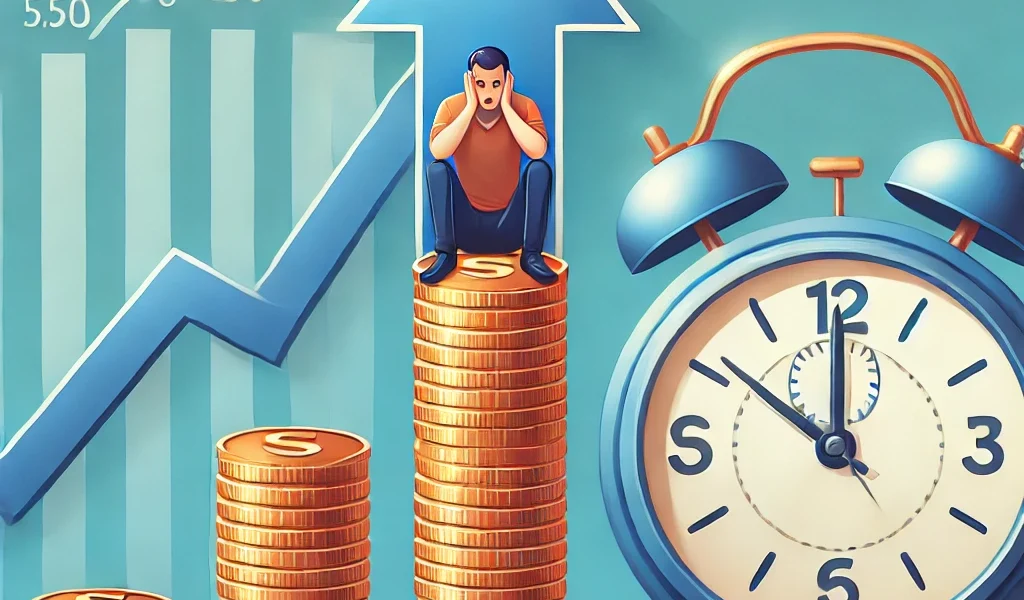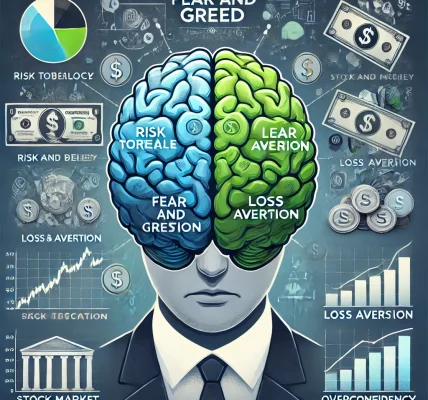Inflation is an economic phenomenon that affects every individual, business, and government. It refers to the gradual increase in the prices of goods and services over time, which in turn reduces the purchasing power of money. While inflation is a natural part of economic growth, failing to understand its impact can have significant consequences on your savings and financial stability. In this blog, we will explore what inflation is, its causes, and how it affects your savings, along with strategies to protect your wealth.
What Is Inflation?
Inflation is the rate at which the general level of prices for goods and services rises, eroding the purchasing power of money. This means that over time, you will need more money to buy the same amount of goods and services. Inflation is typically measured by the Consumer Price Index (CPI) and the Producer Price Index (PPI), which track the changes in prices of everyday essentials such as food, housing, and fuel.
Types of Inflation
- Demand-Pull Inflation: Occurs when demand for goods and services surpasses supply, causing prices to rise.
- Cost-Push Inflation: Happens when production costs increase, leading businesses to pass these costs onto consumers in the form of higher prices.
- Built-In Inflation: Results from the expectation of future inflation, leading businesses and employees to increase prices and wages.
How Inflation Impacts Your Savings
1. Decreased Purchasing Power
One of the most noticeable effects of inflation is that it reduces the value of money. If your savings do not grow at a rate equal to or higher than inflation, the real value of your money decreases over time. For example, if inflation is at 5% per year and your savings earn only 2% interest, your purchasing power is effectively declining.
2. Lower Real Returns on Savings Accounts
Traditional savings accounts typically offer interest rates lower than the inflation rate, which means your money is not growing fast enough to keep up with rising costs. Even high-yield savings accounts may struggle to outpace inflation, making it essential to explore better investment options.
3. Impact on Fixed-Income Investments
For those who rely on fixed-income investments, such as bonds or annuities, inflation can significantly diminish returns. If inflation rises and your fixed-income assets provide a set return, the real value of your earnings decreases, leading to a reduced standard of living over time.
4. Rising Costs of Living
As inflation increases, so do the costs of essentials such as food, housing, healthcare, and education. If your savings and income do not grow at the same pace, it can become challenging to maintain your lifestyle and financial goals.
Strategies to Protect Your Savings from Inflation
1. Invest in Inflation-Protected Assets
Consider allocating a portion of your portfolio to assets that can hedge against inflation, such as:
- Stocks: Historically, equities have provided returns that outpace inflation over the long term.
- Real Estate: Property values and rental income often increase with inflation.
- Commodities: Precious metals like gold and silver tend to hold their value during inflationary periods.
- Inflation-Protected Securities: Treasury Inflation-Protected Securities (TIPS) are government bonds that adjust for inflation.
2. Diversify Your Portfolio
A well-diversified portfolio containing a mix of asset classes can help protect against inflation. By spreading investments across stocks, bonds, commodities, and real estate, you reduce the risk of inflation significantly eroding your wealth.
3. Invest in High-Yield Savings Accounts or Certificates of Deposit (CDs)
While traditional savings accounts may not offer much protection against inflation, some high-yield savings accounts and long-term CDs can provide better returns. However, they should be used in combination with other investment strategies.
4. Consider Investing in Dividend Stocks
Dividend-paying stocks can provide a steady income stream while also benefiting from capital appreciation. Companies that regularly increase their dividends tend to outpace inflation, making them a good hedge.
5. Increase Earnings and Adjust Spending
To counteract inflation’s impact on your savings, consider ways to increase your income, such as upskilling, freelancing, or investing in income-generating assets. Additionally, controlling unnecessary expenses can help maintain financial stability.
Final Thoughts
Inflation is an unavoidable economic reality, but understanding its effects on your savings can help you make informed financial decisions. By diversifying your investments, considering inflation-protected assets, and increasing your earnings, you can safeguard your wealth against the eroding effects of inflation. The key is to stay proactive and continuously adapt your financial strategies to maintain and grow your purchasing power over time.
Start today by reviewing your savings strategy and ensuring your money is working effectively to secure your financial future!




